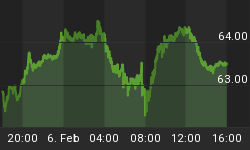While Russian President Vladimir Putin is claiming that sanctions have failed to undermine the country’s economy, international finance agencies and even Putin’s own officials say otherwise, while Beijing–the Kremlin’s main economic ally–is holding back.
“…we can already confidently say that such a policy towards Russia has failed, the strategy of economic blitzkrieg has failed,” Putin said at a meeting with government ministers, stressing that retail demand had normalized and unemployment had remained low.
Yet, earlier this month he acknowledged that consumer prices had risen significantly, with annual inflation hitting 17.5%. And now, the country's Central Bank has come out with an even higher inflation estimate.
Last week, a Russian Central Bank survey showed inflation soaring to 22% this year, with the bank’s Governor Elvira Nabiullina saying that the fallout from sanctions is beginning to spill over from financial markets to the real economy. Addressing parliament, Nabiullina said that "difficulties are appearing across all sectors, in both big and small companies”.
The newly appointed chief economist of the International Monetary Fund (IMF), Pierre-Olivier Gourinchas, said in a blog post that Russia’s economy would effectively be “thrown into autarchy” if sanctions were expanded to include energy, leaving it with only a few trading partners.
Even China and India, which have refrained from joining Western sanctions on Russia, might reconsider their trade relations under the pressure of continuing to do unfettered business with those countries that have imposed sanctions.
Yet, while China appears to be a full-on Russian ally, more quietly it’s doing what benefits it most, and in some cases that includes distancing itself from Russia’s sanction-suffering economy
UnionPay, the Chinese state-led financial services network that would have been the ideal replacement for Western Visa and Mastercard, which have both suspended operations in Russia, has reportedly decided not to cooperate with Russian banks.
According to Russian media, UnionPay has refused to cooperate with Russia’s biggest lender, Sberbank, out of concern over secondary sanctions.
UnionPay also suspended negotiations with other banks, including Russia’s largest private lender, Alfa Bank, and VTB.
Even though Russia and China proclaimed last month that their friendship had "no limits," the possibility that Chinese companies might face U.S. sanctions over ties with Russia is starting to cap those “limits”.
The loyalty test is quite simple here, as trade between China and Russia makes up just 2% of China's total trade volume, while the U.S. and the European Union have much larger shares.
Nor is UnionPay the first instance indicating China’s distancing from Russia. Last month, Russian officials complained that China had refused to send aircraft parts to Russia.
Russian state news agency Tass quoted Valery Kudinov, head of aircraft airworthiness at Russia's air transport agency, as saying that Russia might look into Indian or Turkish suppliers. He was fired five days later.
Last week, the IMF slashed its forecast for global economic growth by nearly a full percentage point, citing Russia’s war in Ukraine.
The IMF is now projecting a 3.6% GDP rate for the global economy this year and for 2023, representing a 0.8 and 0.2 percentage point drop, respectively, from its forecasts published in January. It also cut its global growth expectations for 2022 of 3.2%, down from 4.1%.
The agency said Russia’s gross domestic product was expected to contract 8.5% this year, with a further drop of 2.3% expected next year.
Gourinchas recently told media that Western sanctions targeting Russian energy exports could cause Russia’s economic output to drop by as much as 17% by 2023. The forecast for the Ukrainian economy is even bleaker, where the IMF said that it will contract by 35% in 2022.
Earlier this month, the World Bank said that the continuation of the war would cause even massive falls in GDP, with the estimates a downside 20% contraction in Russia’s GDP and a 75% contraction in Ukraine’s GDP.
“The effects of the war will propagate far and wide, adding to price pressures and exacerbating significant policy challenges,” Gourinchas said in his blogpost.
















